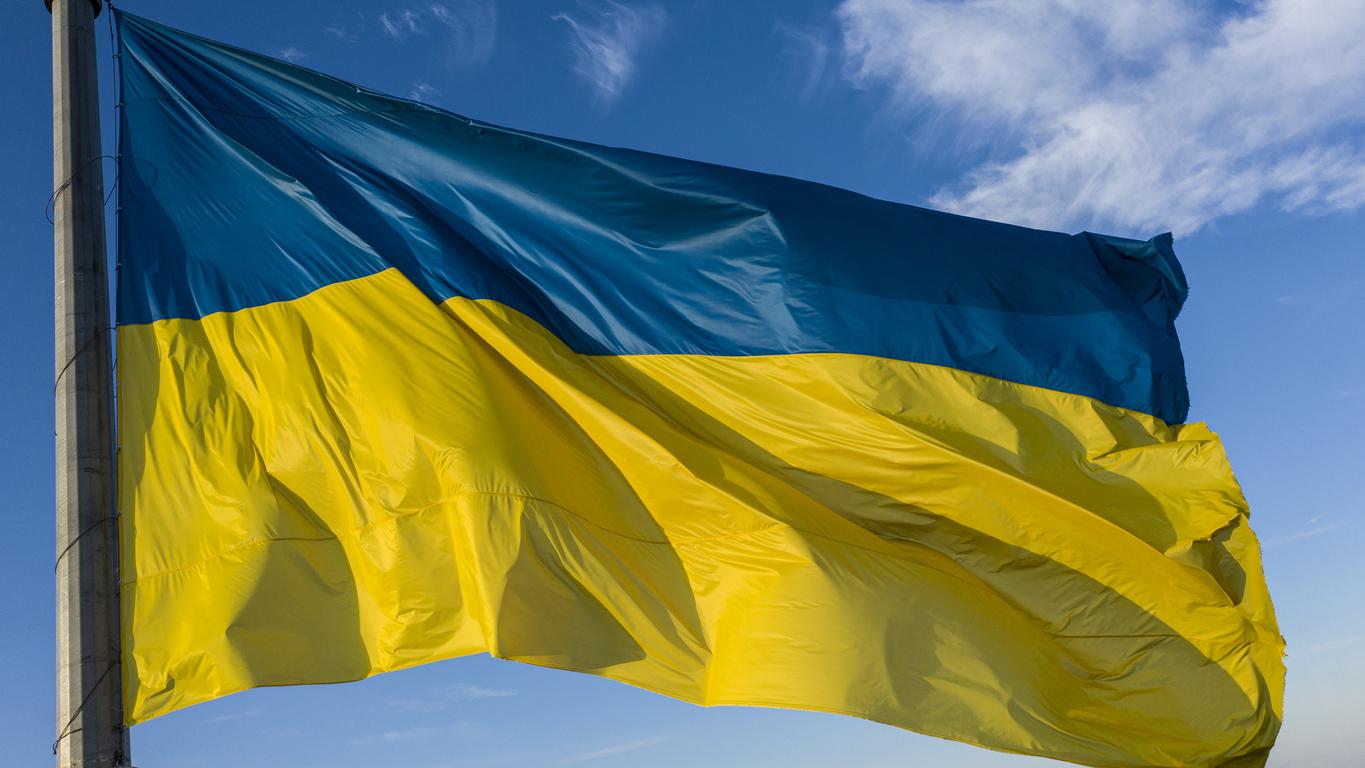During times of great human suffering, it’s only natural to want to help out. If you’re considering making a donation to help those affected by the conflict in Eastern Europe, you’ve likely wondered which charitable organization you should send it to. The truth is, there are many excellent organizations helping out, but there are also many causes appealing to your generosity that aren’t who they say they are.
We’ve compiled some examples of the ways these deceptive organizations may contact you below, as well as a list of sites that are not what they appear to be, but in general, be extra wary of people and organizations contacting you through social media, email, or text message.
Charity email scams
Below are two examples of scammers looking to appeal to people’s generosity via email. Note how both messages provide cryptocurrency wallet addresses (that we’ve blurred) but don’t mention other ways to donate. When an organization only accepts donations via cryptocurrency, it’s a big sign that it’s a scam.
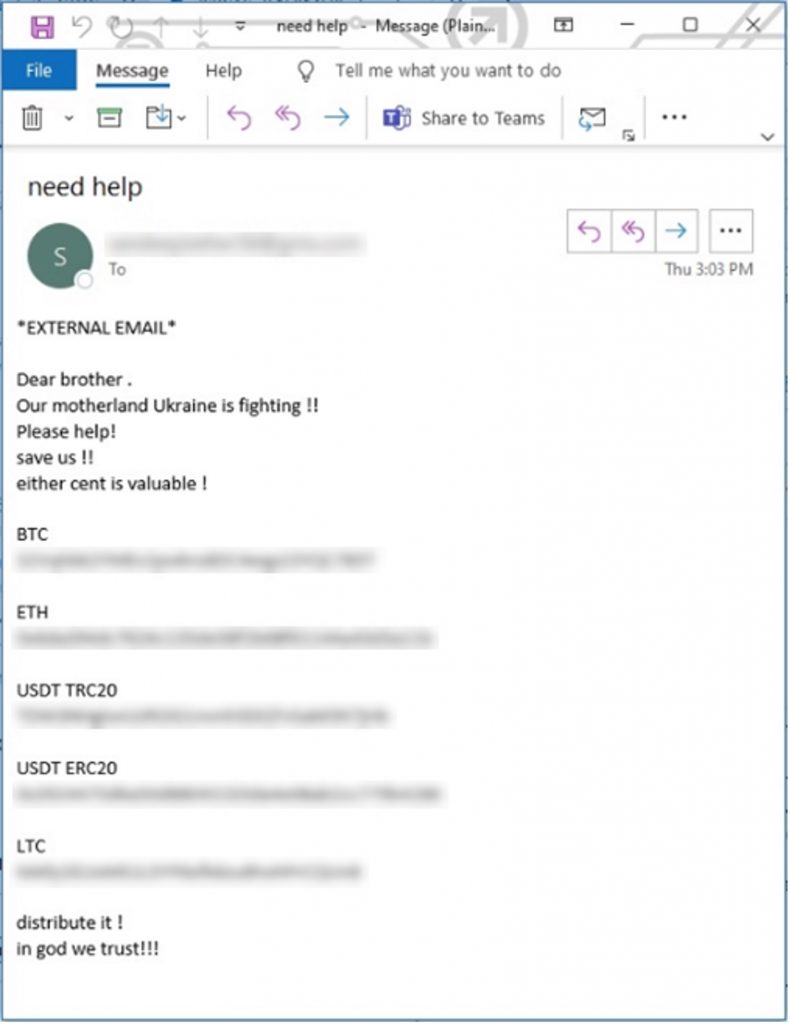
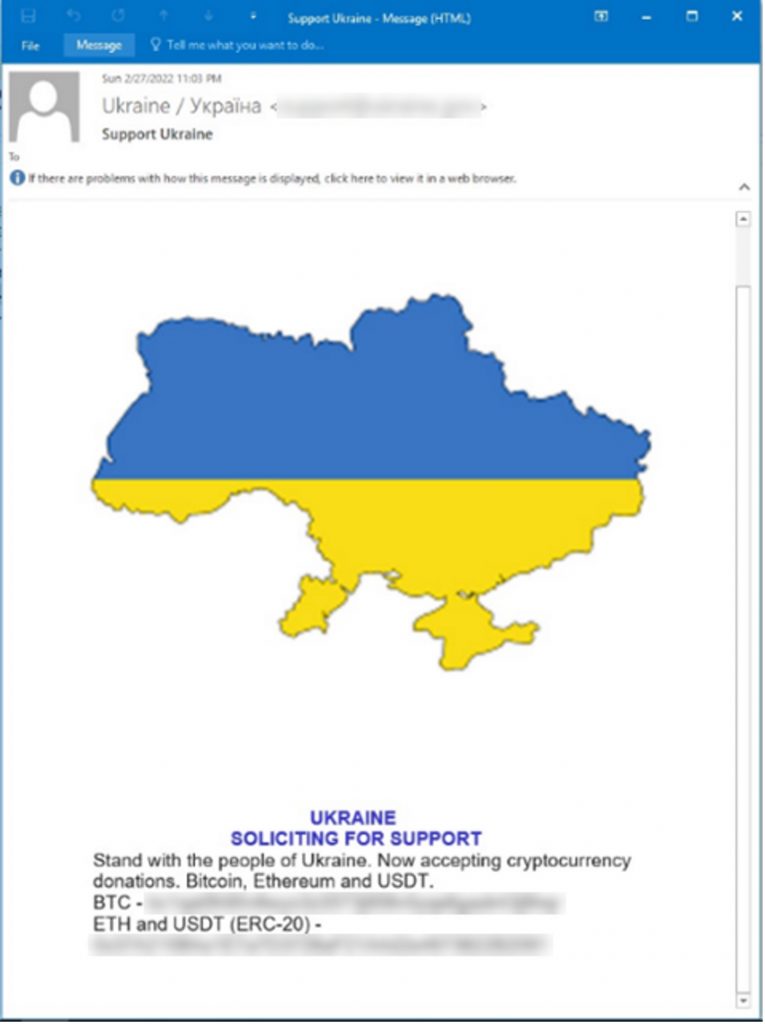
Fake charity websites
Lots of Ukraine-related websites have been created recently, many of which claim to be accepting donations to help those impacted by the ongoing conflict. Unfortunately, a lot of these websites are operated by scammers. Although many of the URLs listed below appear to be legitimate, they have all been confirmed as SCAM websites:
- helpingukraine[.]org
- support-ukraine[.]eu
- donatetoukraine[.]org
- help-for-ukraine[.]eu
- supportukraine[.]net
- supportukraine[.]io
- help-ukraine[.]org
- supportukrainenow[.]com
Below are some examples of these malicious websites.
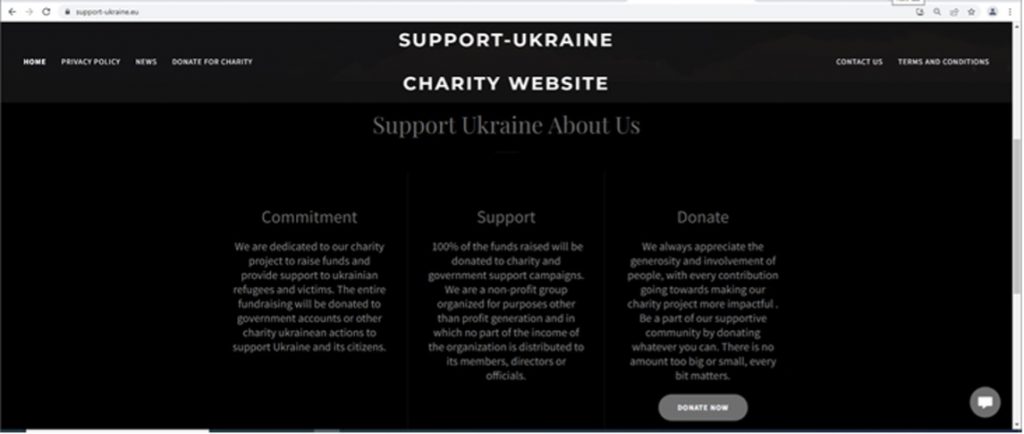
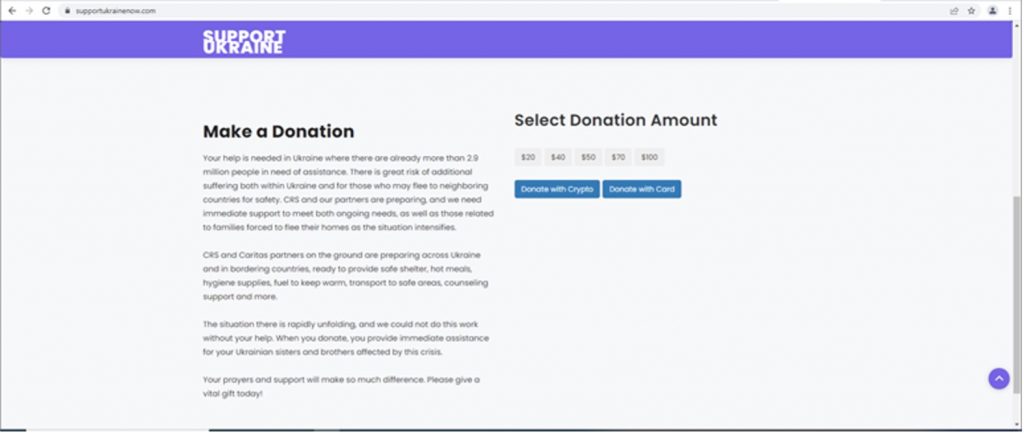
Avoid scam websites with ScamCheck
ScamCheck is a completely free all-in-one browser extension for detecting scams, phishing attacks, malware, and dangerous links. Available for Safari, Google Chrome, and Microsoft Edge.
NFTs for sale on OpenSea
We’ve observed people selling NFTs on the NFT marketplace OpenSea and stating that proceeds from sales will be sent to those affected by the conflict. However, because it is likely that these independent sellers are not affiliated with any legitimate charity helping people in Ukraine, if you are looking to donate, it is best to do so through other means.
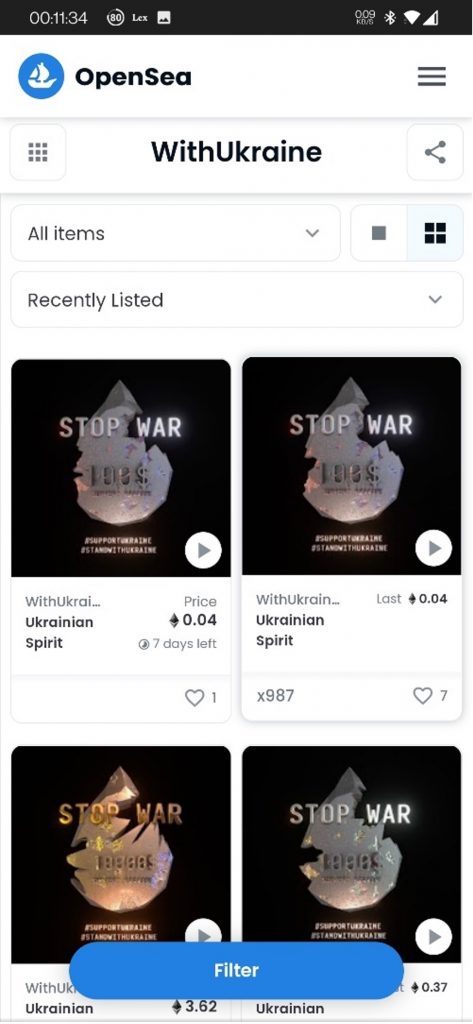
Appeals for donations on social media
Scammers have been posting on various social media platforms, claiming to be Ukrainian citizens in need of financial assistance. They’re not hard to spot, either — they commonly ask for the transfer of cryptocurrency or money via PayPal.
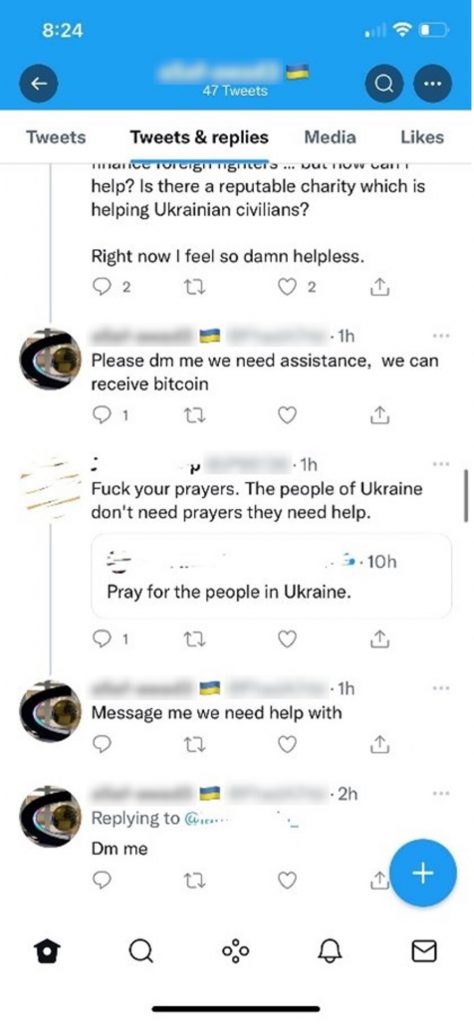
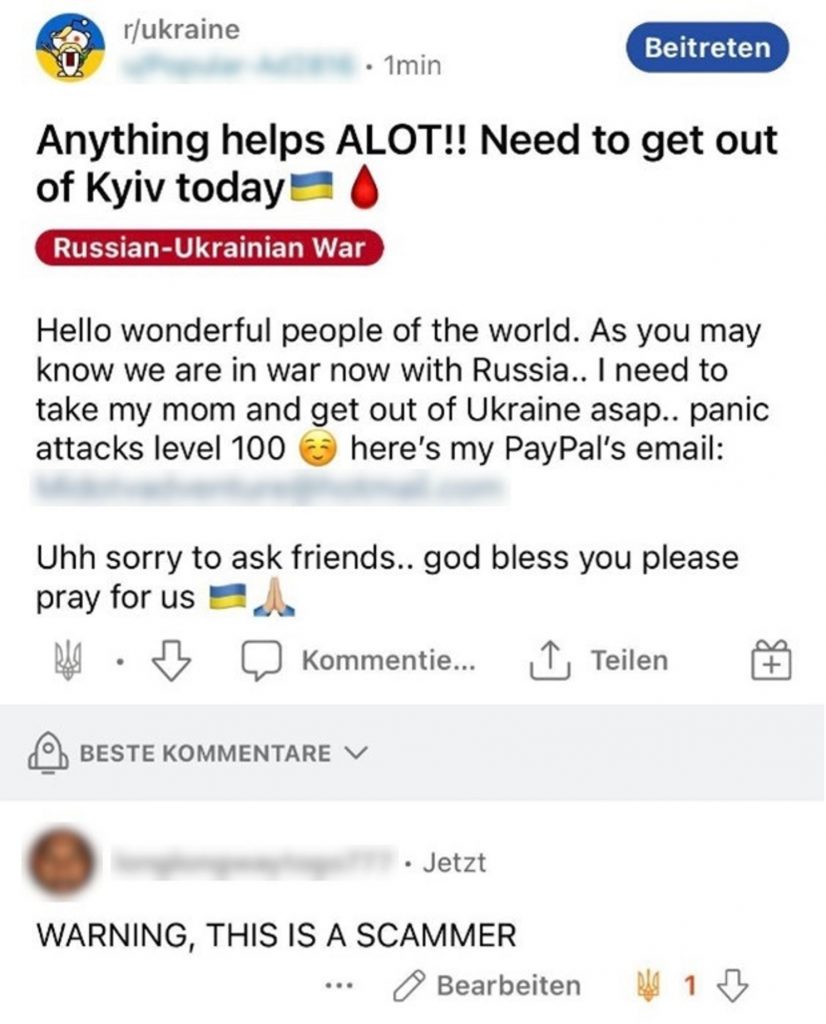
YouTube livestream charity donation scam
One particularly deceptive Ukraine-related scam occurred on YouTube recently. Scammers renamed an existing YouTube channel to “Government of Ukraine” and held a highly convincing livestream designed to encourage viewers to donate cryptocurrency to people affected by the conflict in Eastern Europe. Although YouTube has since closed the fraudulent channel, please watch out for similar scams.
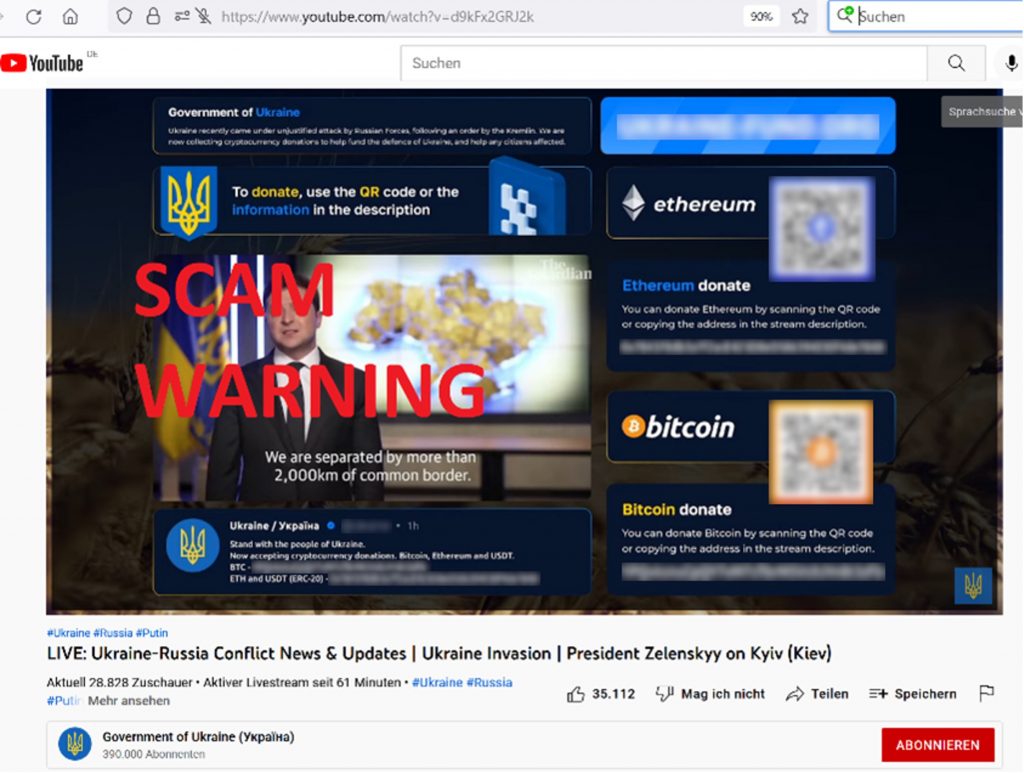
Some things to think about before donating
- Research the organization to see if it has a good rating.
- Find out what percentage of your donation will go directly to relief efforts.
- Ensure the charity has previous experience working with people in the impacted area.
- Ask if the charity has experience in emergency relief.
